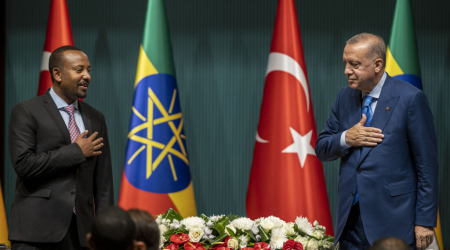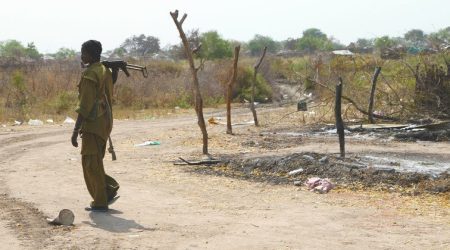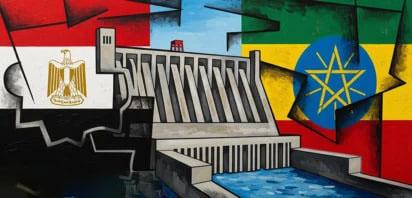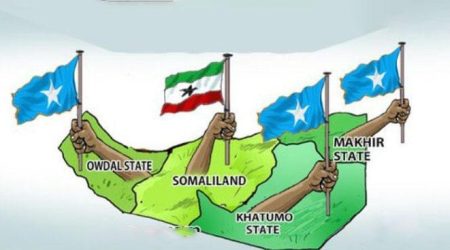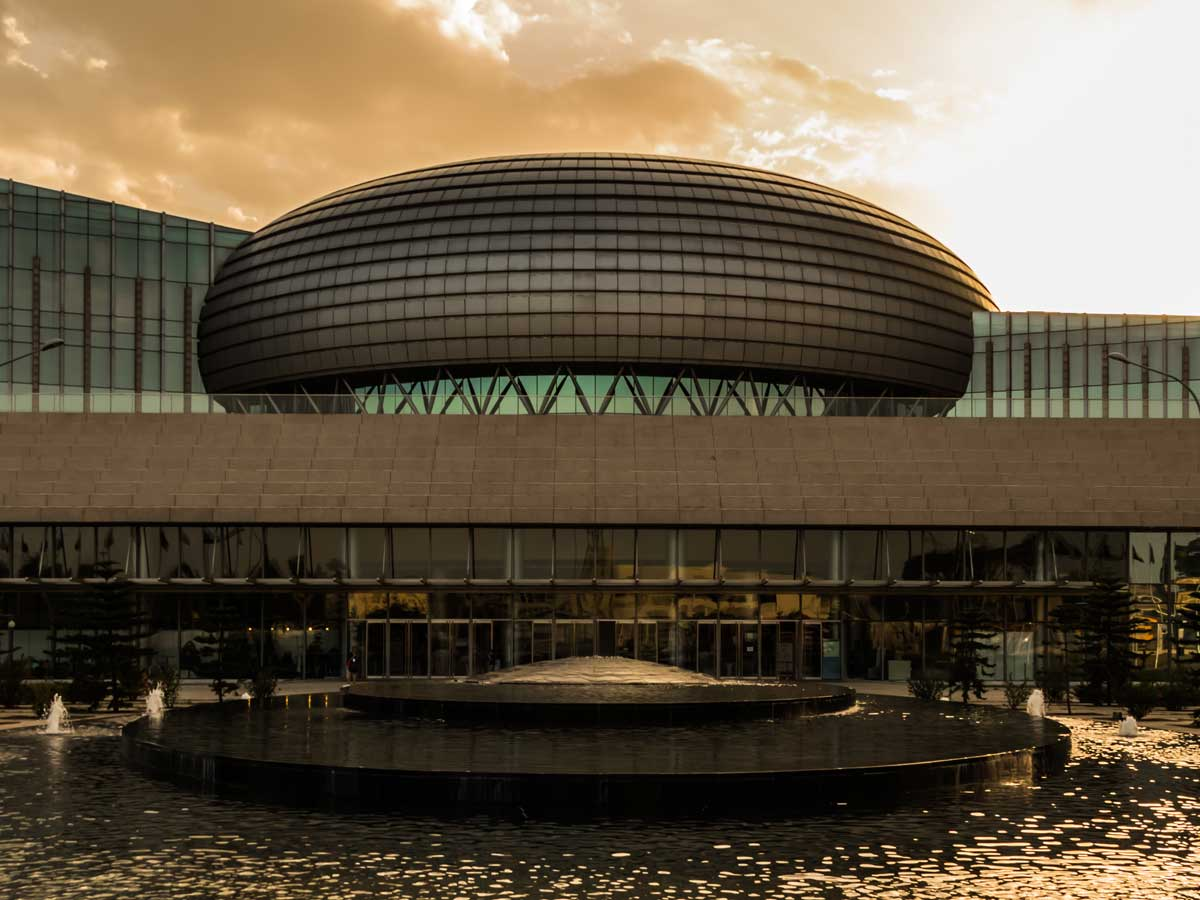
22
Sep
The Flawed Logic Of Relocating The African Union
A recent petition calling for the relocation of the African Union (AU) headquarters from Addis Ababa, Ethiopia, has sparked a vigorous debate, attempting to diminish Ethiopia’s foundational role as outdated and problematic. Notably, such a petition has been undertaken by individuals closely associated with Eritrea, a nation with a history of isolation itself from regional institutions. And while respecting the geopolitical forces and regional complexities that any country, including Ethiopia, has to deal with, a decent serious historical and analytical study shows that the rationale for movement is not just flawed but essentially betrays the very essence and historical path of Pan-Africanism that the AU represents.Ethiopia’s hosting is not a legacy of the past, but an urgent, living affirmation of African sovereignty and unity, and one that is highlighted by the nature of those who would have it removed.
The petition’s suggestion that Addis Ababa’s initial symbolism is “outdated” to contemporary Africa is its most profound misstep. It was not an incidental decision to select Ethiopia’s capital in 1963; it was a deliberate, powerful affirmation of African self-determination.Ethiopia alone on the continent had maintained its independence from the power of European colonialism, having been briefly occupied, having fought against fascist occupation bitterly. It was, and remains, a source of unconquered sovereignty, goading the liberation movements across Africa. The indefatigable diplomacy of Emperor Haile Selassie secured this role, making Addis Ababa the spiritual and diplomatic capital of a reawakening, unified continent. To suggest that the original symbolism is no longer applicable is an attempt to redefine the very origins of Pan-Africanism, cutting the future of the continent from the historical roots of its own independence struggle. The AU headquarters is a living, physical embodiment of such impenetrable will, a daily reminder of what is achievable when Africa unites against seemingly insurmountable odds.
When whispers are whispered as they were in 2004 when Libya proposed relocating the African Union headquarters they are not simply logistical proposals but threats to the very foundations of African unity.As the late Ethiopian Prime Minister Meles Zenawi so eloquently stated, “There have been murmurs about moving the AU; Let me be clear: Addis Ababa is not just a city; it is the political and spiritual capital of Africa. To propose moving it is to call into question the very foundations of our union. We constructed this complex here to make a statement of commitment, not to indulge passing doubts.”The AU headquarters are situated here not by chance but as a living testament to Ethiopia’s legacy of resistance and leadership, a reminder that some foundations run too deep to be disturbed by temporary political agendas.
This Eritrean voices petition is published with the critical element in the dispute: credibility and commitment to institutions. Eritrea’s long history of opting out of or remaining distant from regional and international institutions comes into play. Its withdrawal from and rejoining IGAD is an example of its distance from institutional frameworks for regional cooperation and stability. Moreover, Eritrea’s consistent issue with the United Nations illustrate an even more internationalized trend towards institutional independence that is willing to verge on isolation.
Given this background, the very fact that members of such a lineage want to assert themselves over the structural thickness and historical roots of the African Union ,an organization painstakingly conceived and nurtured in Addis Ababa is existentially incoherent. Close acquaintance with institutional development, leadership and long-term commitment is necessary for credible decision on such matters, a level of knowledge which cannot fairly be claimed by actors who have thus far held themselves at arm’s length from the very content of multilateral cooperation. This petition therefore looks like a politically motivated attempt to delegitimize the rich history of Ethiopia, perhaps a projection of personal grievances onto a wide regional and continental stage. Leaders’ problems should not be used to tar the entire nation or people’s history.
The petition’s argument that Addis Ababa permits a “stranglehold of foreign influence” on the AU is a cynical misdirection. Foreign influence and donor diplomacy are issues confronting the whole of the African continent, irrespective of geography. To suggest that a headquarters change would somehow inoculate the AU from global geopolitics is a naive argument.
The global powers will have leverage wherever the AU is based, since their interests are universal and not specific to any one city. In fact, Ethiopia’s ancient tradition of independence and pioneering efforts at advancing “African solutions to African problems” also ensure that its role as host provides a more roots-inspired and sustainable foundation upon which to push back against external pressures, rather than being especially susceptible to them. Blaming the host nation for a problem within a continental system is to avoid the shared responsibility of all the member states to fund and empower their own institutions.
The suggestion that the original symbolism of Ethiopia is “outdated” to a “forward-looking, dynamic, and contemporary Africa” completely misunderstands the aspirations of young Africans. A forward-looking, dynamic continent understands that it is made powerful by embracing and adding to its great heritage, not discarding it. Ethiopian independence’s legacy continues to be a source of pride and inspiration to generations committed to genuine self-determination and dignity.
Addis Ababa is not only an “East-African-centric” city; it has organically grown into a genuine Pan-African melting pot. It has been a bustling center of diplomats, scholars and Pan-African leaders from across the continent for decades, holding together a unique combination of cultures and ideas that best encapsulates the spirit of African unity. It is a living, tried and tested institution that actively promotes Pan-African cooperation and exchange and therefore the natural hub of a harmonized, prosperous and peaceful Africa.
The attempt to relocate the AU headquarters from Addis Ababa is a cynical attempt to undermine Ethiopia’s historical, symbolic and practical place at the heart of Pan-Africanism. It is not a mere bureaucratic reorganization; it is a challenge to the history that united the continent.
Ethiopia is not merely a host, but the profound spiritual and historical home of the African Union.To move the headquarters would be to sever the institution from its very beginnings, to negate the precious sacrifices and history which mark its life. Ethiopia’s singular history of independence, its geographic centrality, and its early commitment to the vision of Pan-African make Addis Ababa the only truly fitting and symbolic capital of the African Union.
Let us not be victims of fleeting geopolitical breezes or revisionist history, least of all if driven by actors with a questionable record of institution engagement. As Africa ascends to a future of integration and self-determination, it is to do so on the grounds of historical fact and steadfast determination. That ground is, without question, Addis Ababa.
By Bethelhem Fikru, Researcher, Horn Review


